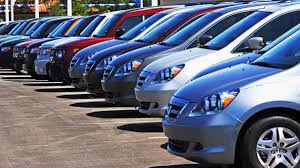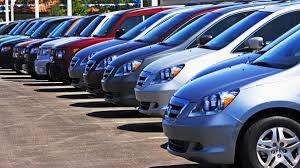Why Buy a Used Car?
-
Cost Savings: One of the primary reasons people opt for used cars is the significant cost savings. New cars depreciate quickly, losing a substantial portion of their value within the first few years. By buying used, you can avoid the steep depreciation and get more car for your money.
-
Lower Insurance Costs: Insurance premiums for used cars are generally lower than those for new vehicles. This is because the value of the car is lower, reducing the risk for the insurer. As a result, buying a used car can lead to ongoing savings on insurance.
-
Wide Selection: The used car market offers a vast array of makes, models, and years to choose from. Whether you're looking for a reliable family sedan, a sporty convertible, or an eco-friendly hybrid, there's likely a used car that fits your needs and budget.
-
Less Depreciation: While all cars depreciate over time, used cars do so at a slower rate compared to new cars. This means that if you decide to sell the car later, you're likely to recoup a larger percentage of your initial investment.
-
Certified Pre-Owned Options: Many dealerships offer certified pre-owned (CPO) vehicles that have undergone rigorous inspections and come with extended warranties. These cars offer peace of mind and often include additional perks like roadside assistance.
What to Look for When Buying a Used Car
-
Vehicle History Report: Always obtain a vehicle history report (such as a Carfax or AutoCheck) to check for any past accidents, title issues, or other red flags. This report provides valuable information about the car's previous ownership, maintenance history, and any reported damage.
-
Mileage: The mileage on a used car can be an indicator of how much life the vehicle has left. While high-mileage cars can still be reliable, they may require more maintenance and repairs. Consider the car’s age and how the mileage compares to the average for that model.
-
Condition of the Car: Inspect the car thoroughly for any signs of wear and tear, rust, or damage. Pay close attention to the exterior, interior, tires, and under the hood. It's also a good idea to have a trusted mechanic perform an inspection to identify any potential issues.
-
Test Drive: A test drive is crucial to assess the car’s performance. Pay attention to how the car handles, the responsiveness of the brakes, the smoothness of the transmission, and any unusual noises. This is your opportunity to ensure the car meets your driving needs and expectations.
-
Maintenance Records: Ask the seller for maintenance records to verify that the car has been regularly serviced. A well-maintained vehicle is likely to be more reliable and have a longer lifespan.
-
Ownership Costs: Consider the long-term costs of owning the car, including fuel efficiency, maintenance, and repair costs, and the availability of replacement parts. Some cars are more expensive to maintain than others, so it’s important to factor these costs into your decision.
-
Resale Value: Research the resale value of the car you're interested in. Some brands and models hold their value better than others, which can be an important factor if you plan to sell the car in the future.
Where to Buy a Used Car
-
Dealerships: Buying from a dealership can offer several advantages, including a wider selection of cars, financing options, and the availability of certified pre-owned vehicles. Dealerships often provide warranties and a higher level of consumer protection compared to private sellers.
-
Private Sellers: Purchasing from a private seller can sometimes result in a lower price since there are no overhead costs for a dealership. However, it's important to be cautious and ensure you thoroughly inspect the car and verify the vehicle’s history before making a purchase.
-
Online Marketplaces: Websites like Autotrader, Craigslist, and CarGurus allow you to search for used cars in your area and compare prices from various sellers. These platforms offer a convenient way to browse a wide range of options, but be sure to exercise caution and verify the legitimacy of the seller.
-
Auctions: Car auctions can be a way to find deals on used cars, but they require a good understanding of vehicles and the auction process. It’s easy to get caught up in the bidding, so set a budget and stick to it.
Tips for Negotiating the Best Price
-
Do Your Research: Before negotiating, research the market value of the car you're interested in. Use resources like Kelley Blue Book or Edmunds to get an accurate estimate of what the car is worth.
-
Be Prepared to Walk Away: If the price isn’t right or you have doubts about the car, don’t be afraid to walk away. There are plenty of other options available, and it’s important to feel confident in your purchase.
-
Consider the Total Cost: When negotiating, focus on the total cost of the car, including taxes, fees, and any additional charges. This ensures there are no surprises when it comes time to finalize the purchase.
-
Ask for Extras: Sometimes, sellers are willing to include extras like a set of new tires, a full tank of gas, or a complimentary oil change to close the deal. Don’t hesitate to ask for these perks during negotiations.

















